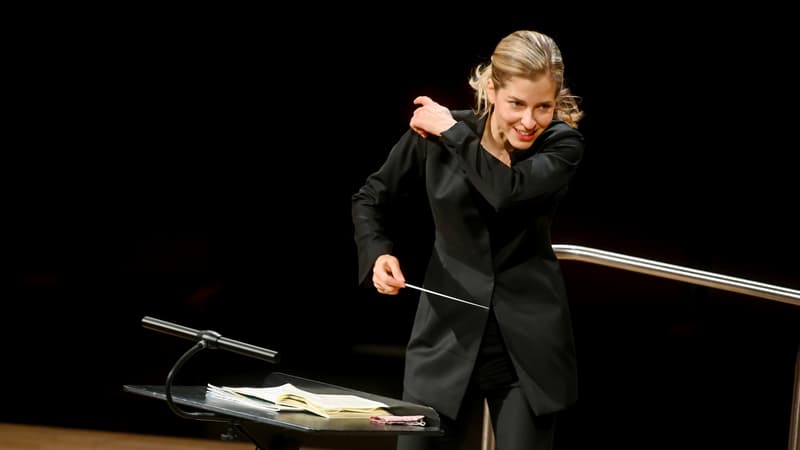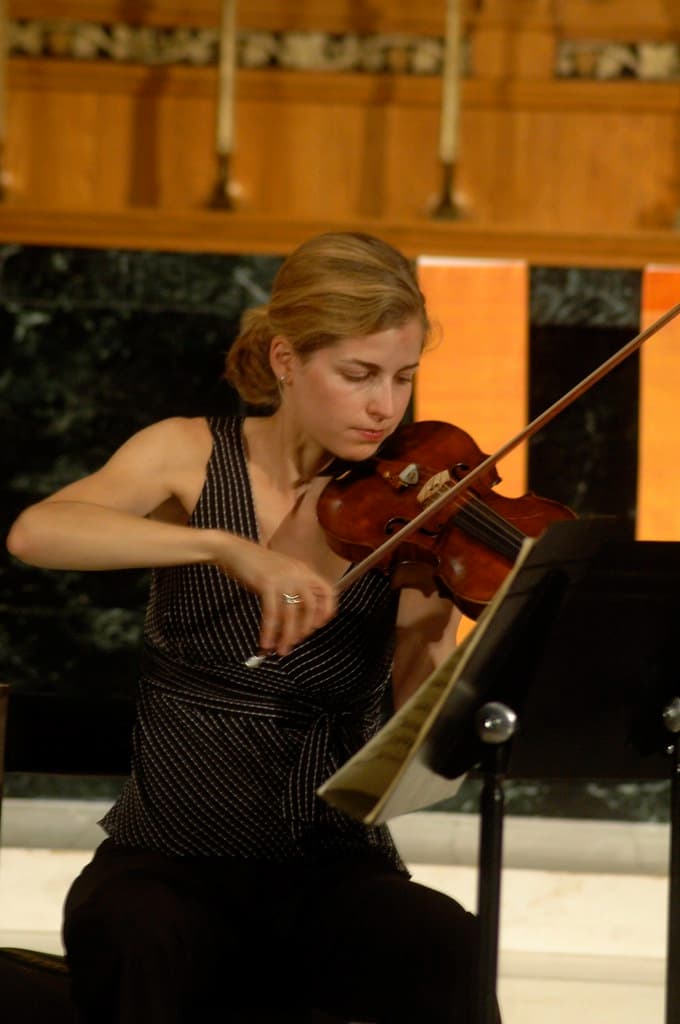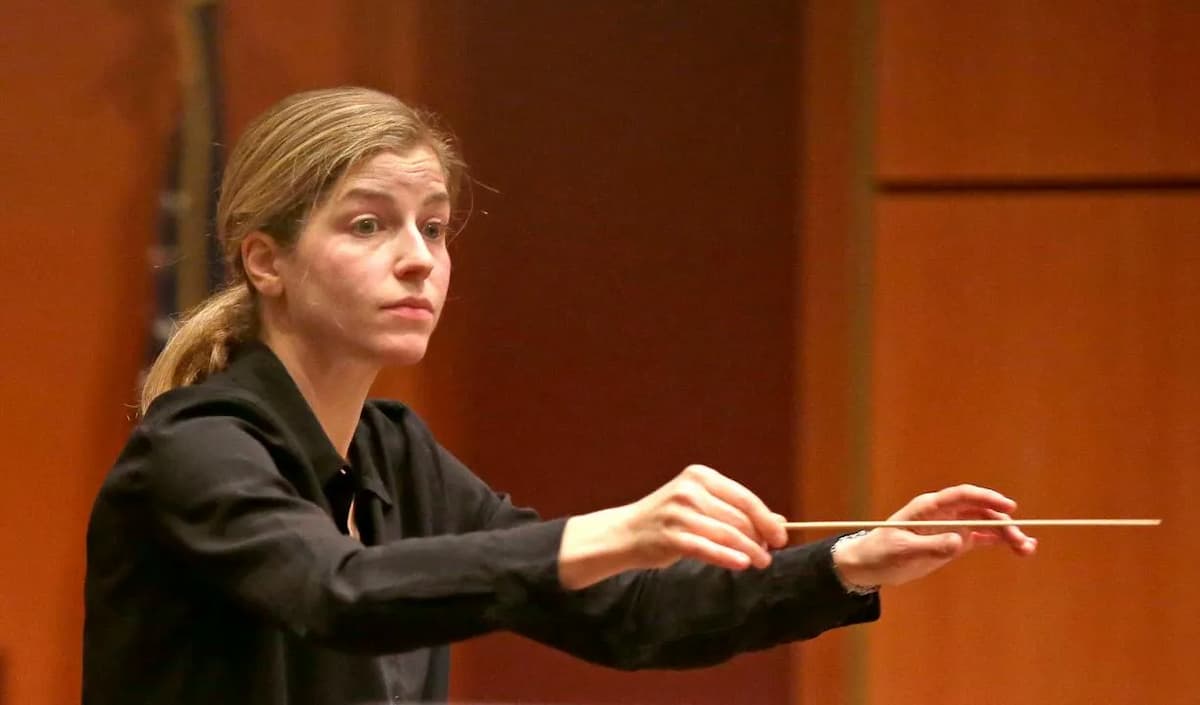Born in New York City on 23 August 1981, conductor Karina Canellakis has a number of firsts to her name. She was the first woman to conduct the First Night of the BBC Proms in London in 2019, and was also the first woman to ever conduct the Nobel Prize Concert with the Royal Stockholm Philharmonic in 2018. Acclaimed for her emotionally charged performances, technical command, and interpretive depth, Canellakis is one of the most in-demand conductors of her generation.
Karina Canellakis Conducts Sibelius’ En saga, Op. 9
Growing Up

Karina Canellakis conducting the Munich Philharmonic
Canellakis is of Greek and Russian parentage, and she grew up in a family of musicians. Her parents met while studying music at Juilliard, and eventually, her father Martin became a conductor and her mother Sheryl a pianist. As she remembers, “music was always the main focus of my family, and our very small apartment in New York was full of the sound of everybody practising.”
Karina started violin lessons at an early age while her younger brother Nicholas studied the cello. She also remembered that her father was always studying scores on the dining room table, “so it was a part of everyday life; we ate dinner, and we played music!” To be sure, Canellakis has always been fascinated by conducting.
Dai Fujikura: Cello Concerto (ensemble version) (Katinka Kleijn cello; International Contemporary Ensemble; Karina Canellakis, cond.)
First Musical Steps
As she explained in an interview, “I started taking conducting lessons when I was 12, and I always thought that it was just a normal thing to do.” Her father strongly believed that it would be good for every young musician to learn how to read a score and to have a more in-depth sense of music. “Thinking more seriously about why a piece is beautiful, trying to get the harmony, the structure, the reason why the composer wrote the piece. That’s how I was raised.”
A phenomenally talented violinist, Canellakis entered the Curtis Institute of Music in Philadelphia and studied both violin and conducting. Her favourite weekly class was playing in the orchestra for student conductors. “It was so exciting for me,” she said. “I just loved breaking down the whole art of conducting and how you can translate all of these various complicated signals into just a few movements of the face and the hands.”
Karina Canellakis Conducts Beethoven’s Symphony No. 3 “Eroica”
Berlin and Rattle

Karina Canellakis playing the violin
Canellakis graduated from Curtis in 2004, having studied violin with Ida Kavafian, and subsequently spent two years as a violinist with the Berlin Philharmonic Academy Orchestra. Playing under some of the greatest conductors in the world, she explained, “I was like a sponge. I was always watching them and observing.” And it was the then music director of the Berlin Philharmonic, Sir Simon Rattle, who encouraged her conducting ambitions.
Rattle told her, “you may not see many people that look like you up there, but I really think you could do this. If you want to, you should go for it.” According to Canellakis, “this changed my pattern of thinking and gave me a little bit of a push toward having the courage to step slightly away from the violin and try making music without the instrument in my hand, which in the beginning was quite terrifying.”
Joey Roukens: Silent Echoes (Lucas Jussen, piano; Arthur Jussen, piano; Netherlands Radio Philharmonic Orchestra; Karina Canellakis, cond.)
Career and Family

Canellakis is still a dedicated violinist, and her experience as a violinist always informs her work as a conductor. As she explained in an interview, “I can’t imagine being a conductor without having had all the years of string quartet playing because that repertoire is the most closely related to the symphonic one, so it was crucial for me to understand how composers structure their work.” And equally important, she understands all the realities of playing in an orchestra. “I know what it feels like to sit in a concertmaster chair and everything in between.”
Canellakis is eager to see more women in leadership roles who have also chosen to have a family. While residing in the Netherlands, she often travels with her entire family when she is on the road. As she explained, “I feel very, very fortunate that I am able to lead this privileged lifestyle where I’m able to do what I love and make music, and also enjoy being a mom and having a personal life. I’m very happy that I didn’t choose to give that up in order to be a workaholic.”
For more of the best in classical music, sign up for our E-Newsletter
